14 Free Arthur Schopenhauer Books [PDF]
by InfoBooks

Looking for Arthur Schopenhauer books in PDF? We have gathered free Arthur Schopenhauer books covering his major philosophical works, essays on pessimism, morality, human nature, and the art of argument.
Schopenhauer built his philosophy on Immanuel Kant's ideas and took them toward pessimism and the nature of human will. His main work, The World as Will and Idea, influenced Friedrich Nietzsche, Sigmund Freud, and modern existentialism.
Browse the full collection below. Every book is free to read online or download as PDF.
Essays Of Schopenhauer
PDF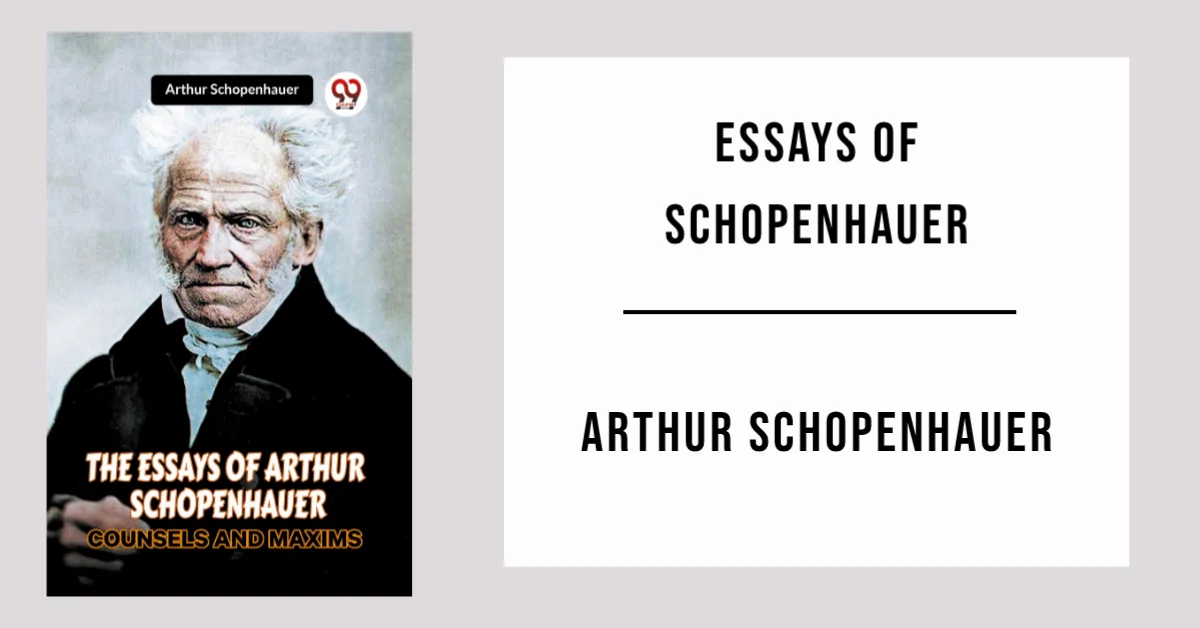
Want to hear a philosopher who says exactly what he thinks, with no apologies? Essays Of Schopenhauer covers topics like thinking, reading, noise, and human nature with brutal honesty.
Arthur Schopenhauer wrote with a sharp pen and a dark sense of humor. You do not have to agree with him to enjoy how clearly he puts his ideas.
On Women
PDF
What did one of history's sharpest philosophers think about women, and why does it still spark debate? On Women is Arthur Schopenhauer's most controversial essay, tackling gender, nature, and social roles through the lens of his philosophical pessimism.
His arguments are sharp, often uncomfortable, and deeply rooted in 19th-century thinking. Whether you agree or not, this essay remains a key document for understanding how Western philosophy historically framed gender.
On the Fourfold Root of the Principle of Sufficient Reason
PDF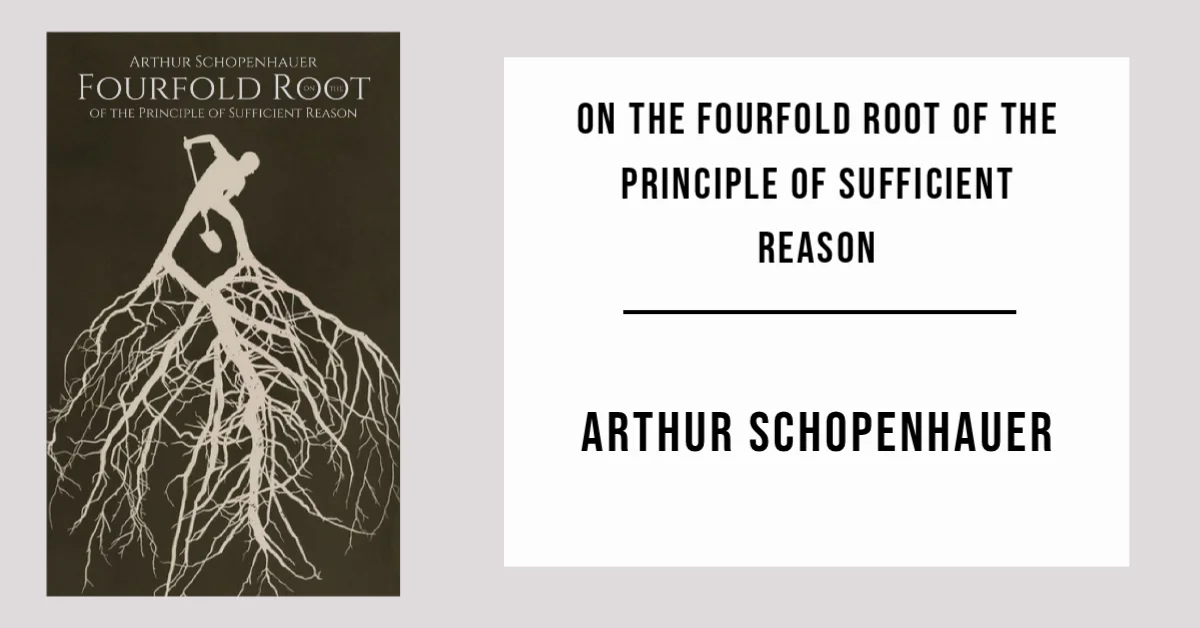
Want to understand Schopenhauer before tackling his major work? On the Fourfold Root of the Principle of Sufficient Reason was his doctoral dissertation, and it lays out the logical foundation for everything he would later build.
Schopenhauer breaks the principle of sufficient reason into four forms: logical, physical, mathematical, and moral. It remains one of the clearest introductions to how one of philosophy's most original minds structured his entire system.
The Basis Of Morality
PDF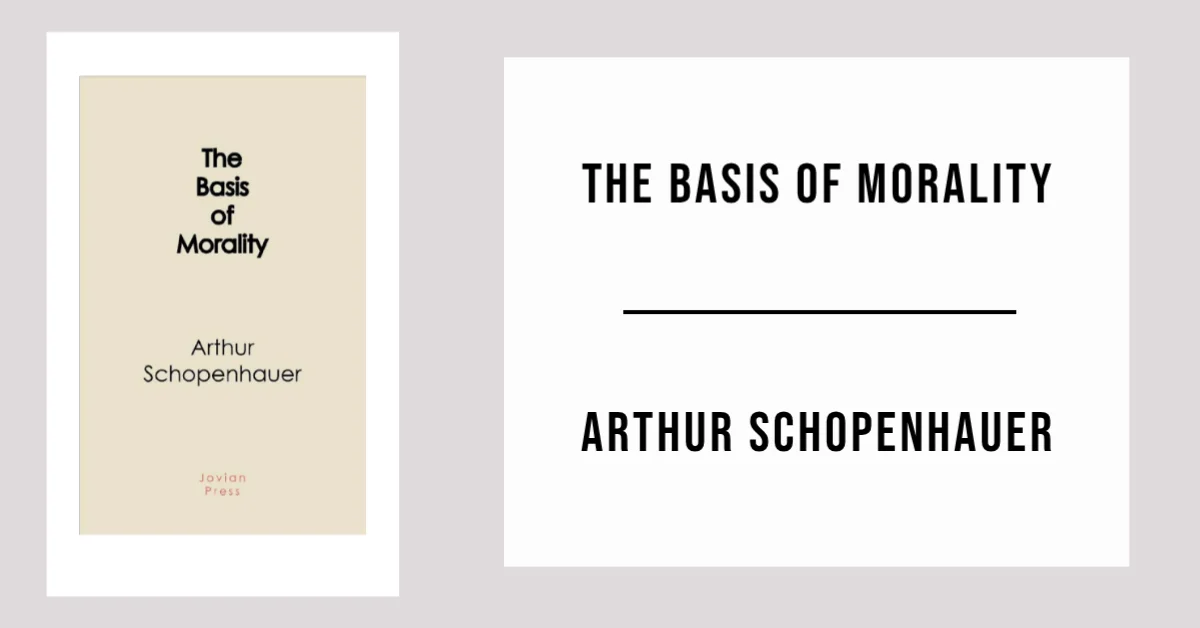
Why do people act with kindness when there's nothing in it for them? The Basis Of Morality argues that compassion, not duty, is the real root of all moral action.
Arthur Schopenhauer challenges Kant and builds his own answer to what makes us good. If you've ever wondered why we feel the pain of others, this book offers a clear answer.
The Essays of Arthur Schopenhauer Counsels and Maxims
PDF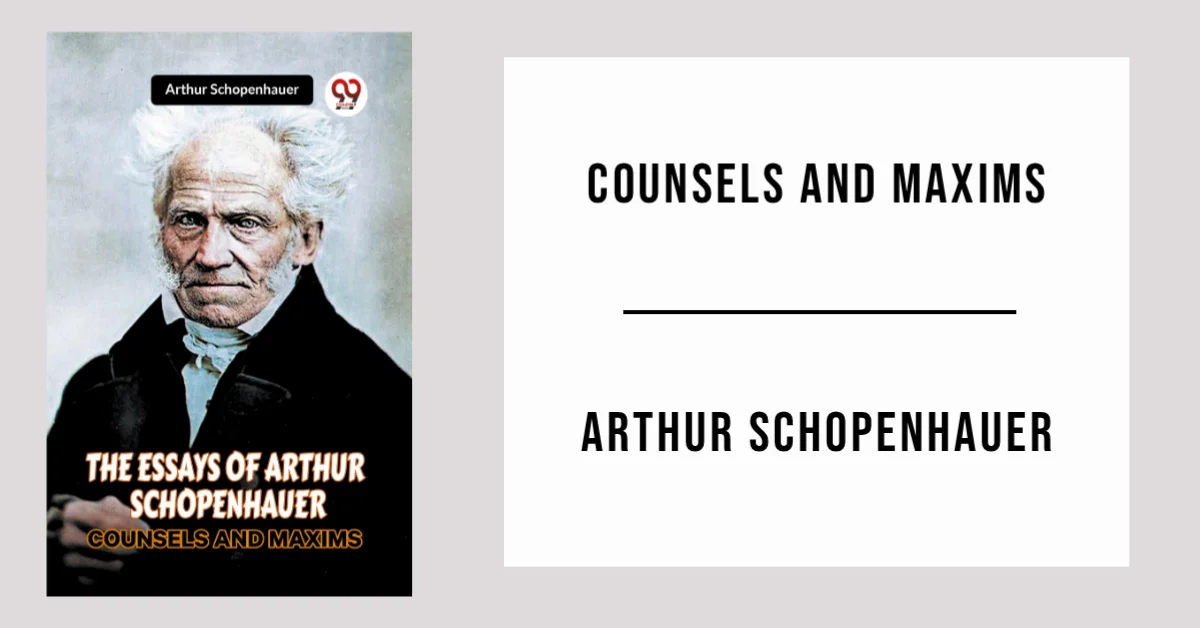
Want honest advice about happiness, health, and how to deal with other people? The Essays of Arthur Schopenhauer Counsels and Maxims gives sharp, practical wisdom you can use right away.
Arthur Schopenhauer writes like a blunt friend who tells you the truth. His advice on solitude, envy, and contentment still hits home.
The Essays of Arthur Schopenhauer Religion a Dialogue Etc
PDF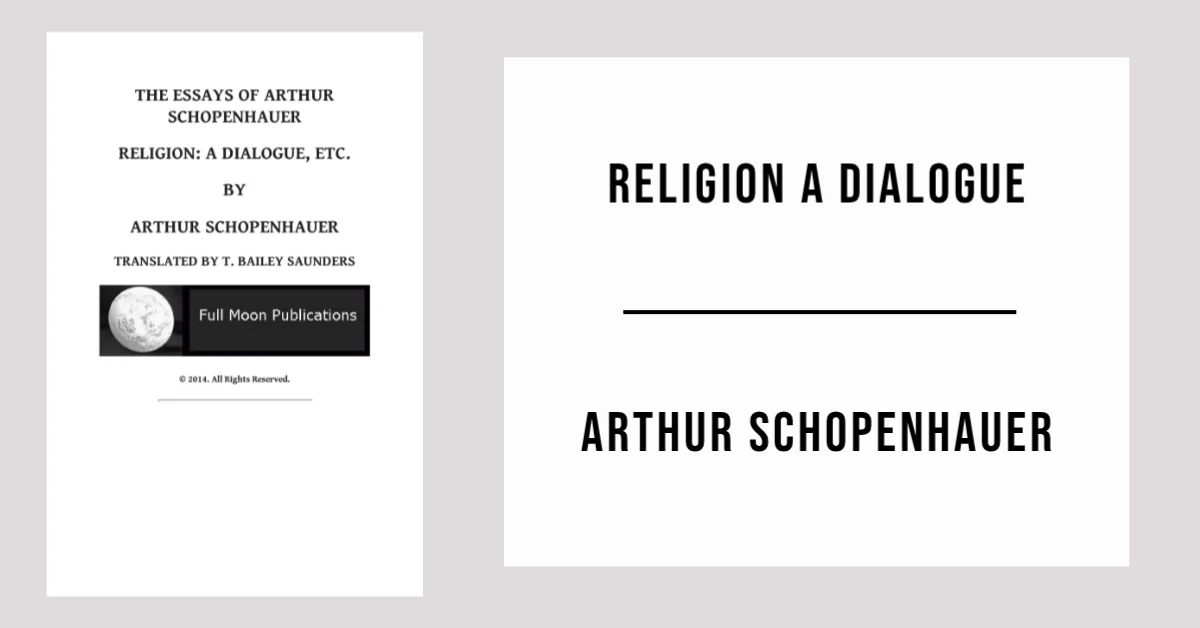
Is religion based on truth, or does it serve a different purpose? The Essays of Arthur Schopenhauer Religion a Dialogue Etc tackles faith, reason, and the role religion plays in human life.
Arthur Schopenhauer writes as a dialogue between two thinkers who disagree. You get both sides of the argument laid out with honesty and wit.
The Essays of Arthur Schopenhauer Studies in Pessimism
PDF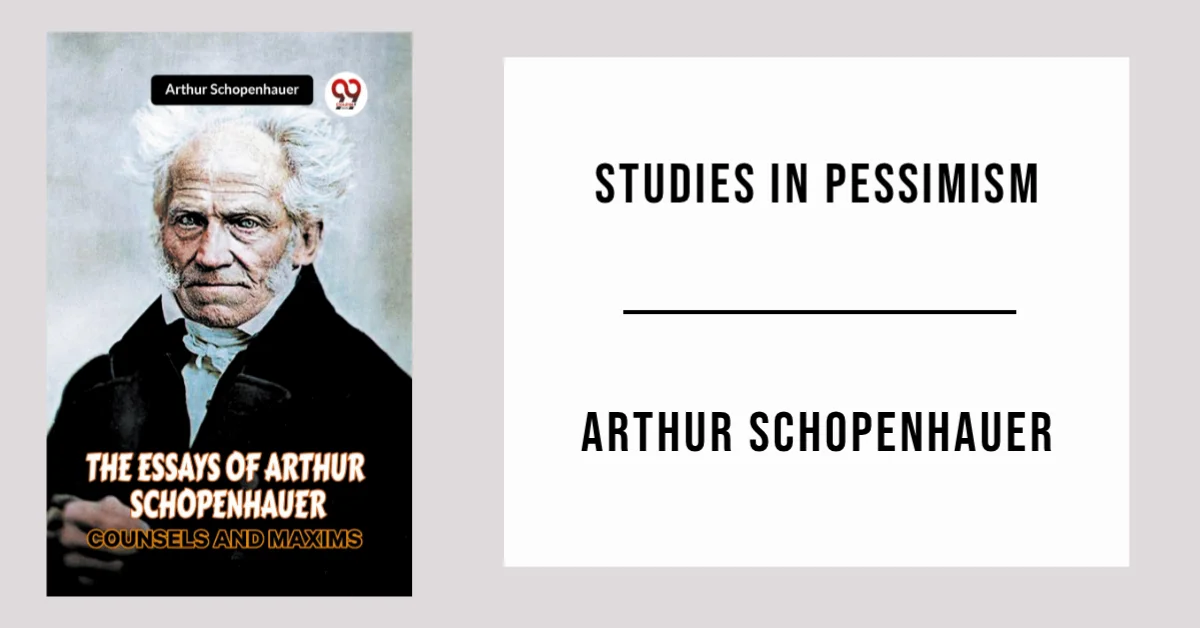
Life involves suffering, so how do you live well anyway? The Essays of Arthur Schopenhauer Studies in Pessimism offers a clear-eyed look at pain, disappointment, and what we can still do about them.
Arthur Schopenhauer's pessimism is oddly comforting. Knowing the worst upfront can free you to focus on what truly matters.
The Essays of Arthur Schopenhauer on Human Nature
PDF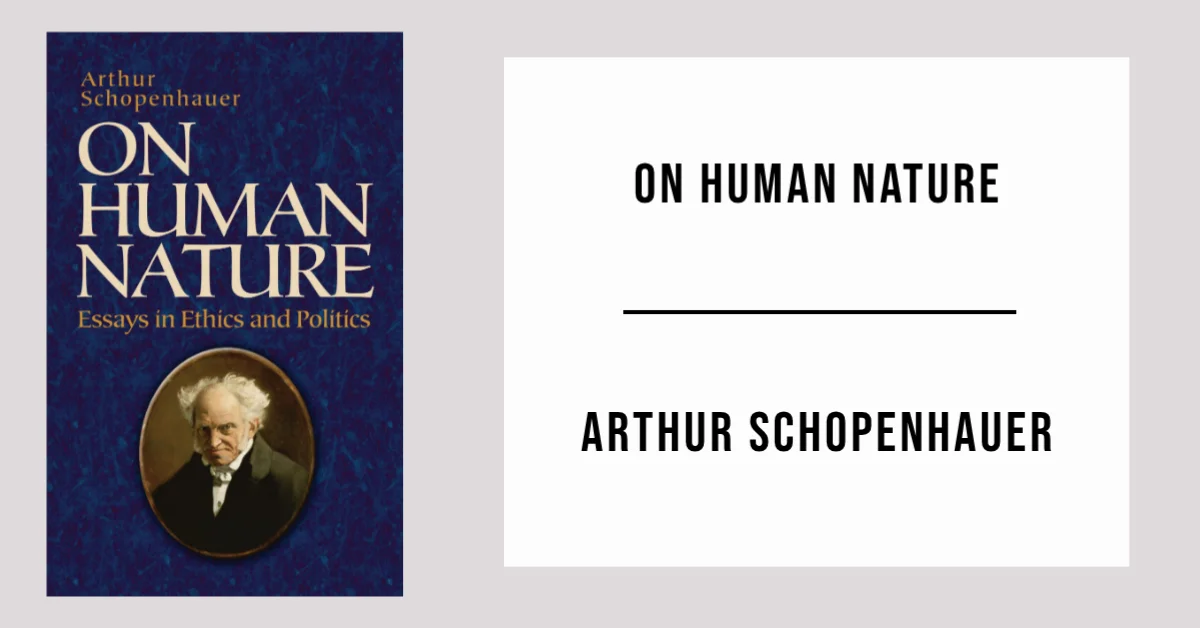
Why do people lie, cheat, and still think of themselves as good? The Essays of Arthur Schopenhauer on Human Nature digs into the gap between who we are and who we pretend to be.
Arthur Schopenhauer watches people the way a scientist watches animals. His observations about pride, anger, and self-deception are sharp and often funny.
The Essays of Arthur Schopenhauer the Art of Controversy
PDF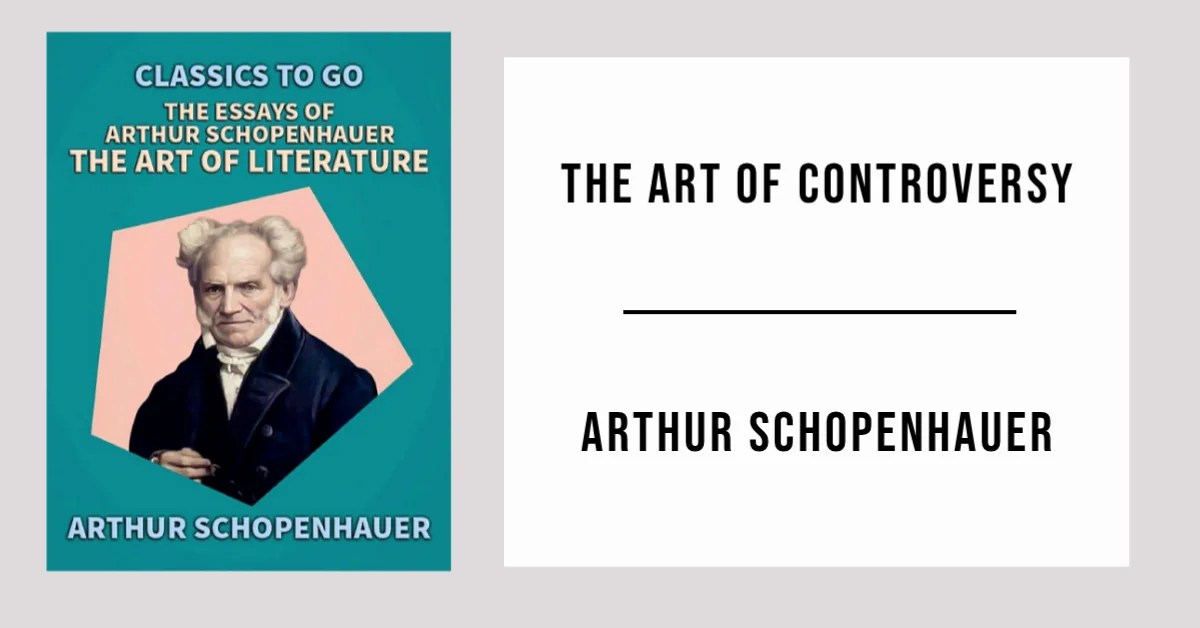
Want to win an argument, even when you're wrong? The Essays of Arthur Schopenhauer the Art of Controversy lists thirty-eight tricks people use in debates, and how to spot every one of them.
Arthur Schopenhauer wrote this short guide with a mix of logic and dark humor. After reading it, you'll notice these tactics in every argument you hear.
The Essays of Arthur Schopenhauer the Art of Literature
PDF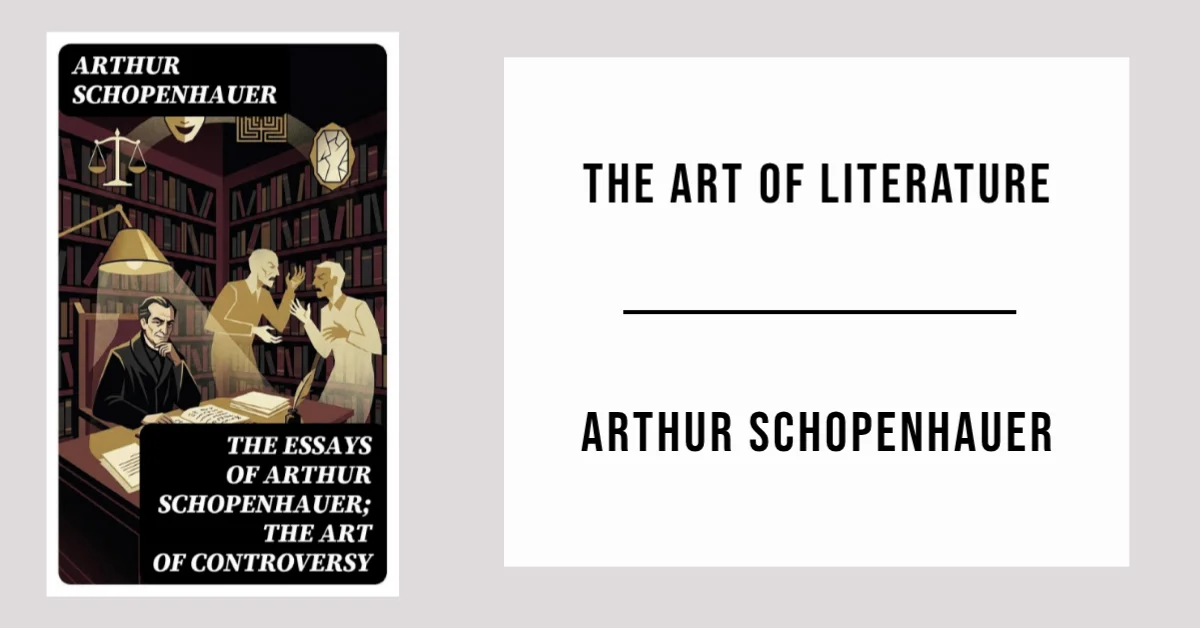
What makes good writing, and why is most of it bad? The Essays of Arthur Schopenhauer the Art of Literature shares blunt opinions on reading, writing, thinking, and the book industry.
Arthur Schopenhauer had strong views on style and substance. Writers and readers alike will find his essays refreshingly honest about what makes words matter.
The Essays of Arthur Schopenhauer the Wisdom of Life
PDF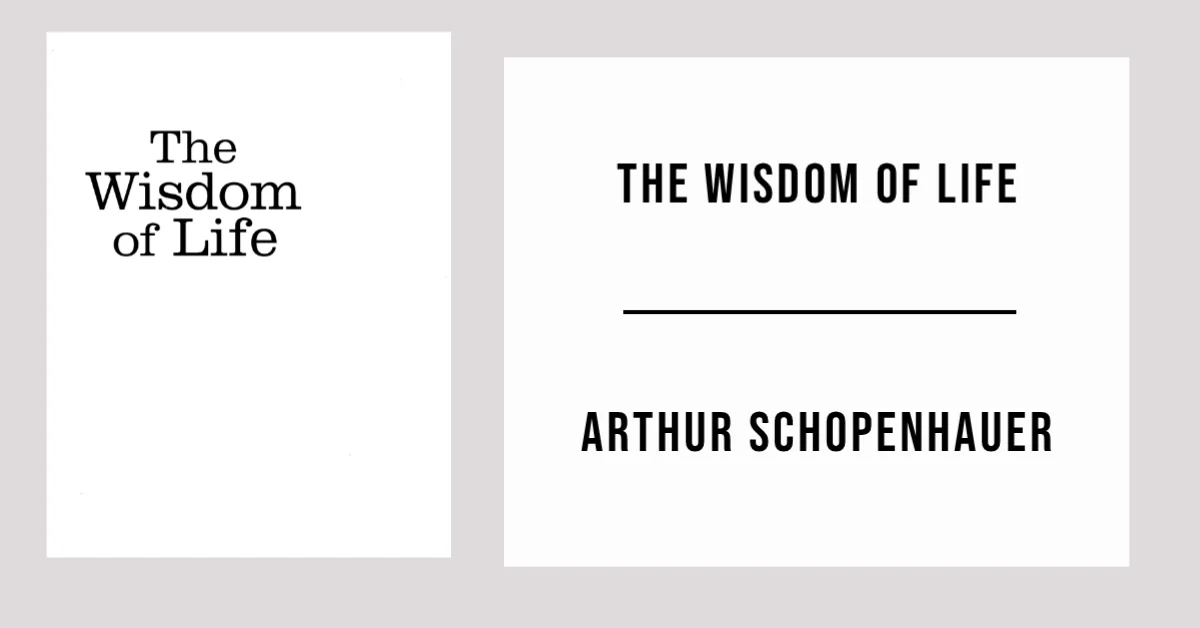
Happiness depends more on who you are than on what you have. The Essays of Arthur Schopenhauer the Wisdom of Life explains why inner qualities beat wealth and fame every time.
Arthur Schopenhauer breaks life into what you are, what you have, and what others think of you. His argument for focusing on the first one is simple and hard to argue with.
The World as Will and Idea, Vol. 1
PDF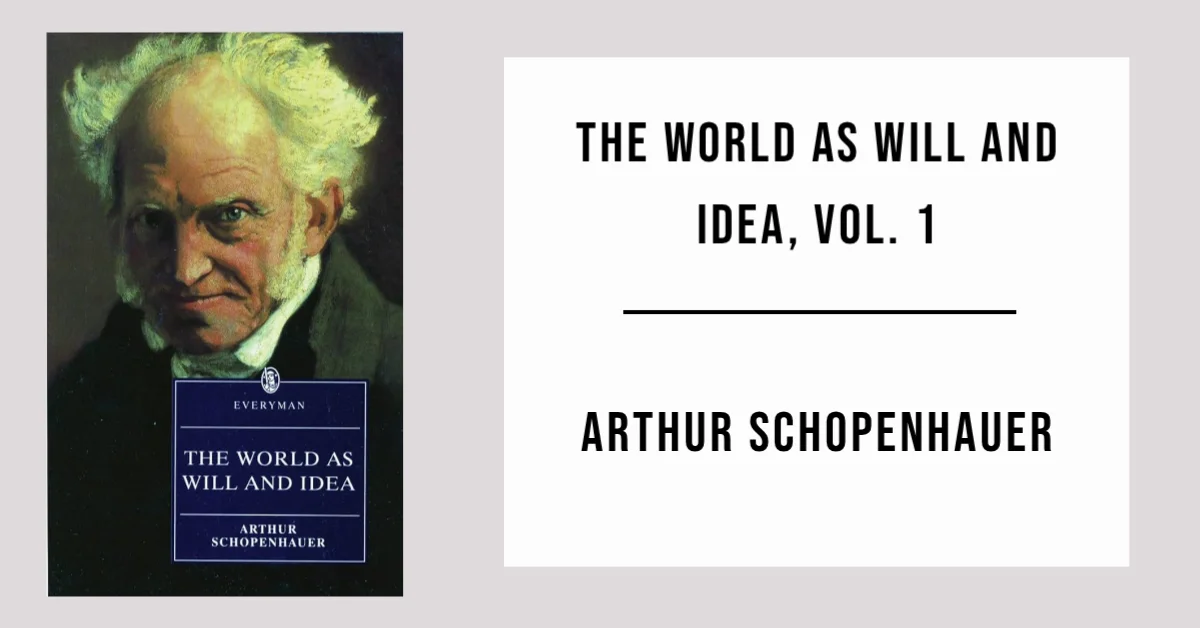
What if everything you experience is just a projection of your own mind? The World as Will and Idea, Vol. 1 is Arthur Schopenhauer's bold attempt to answer that question, arguing that a blind, restless force called "the will" drives all of existence.
Published in 1818 and ignored for decades, this book went on to shape Nietzsche, Freud, and Wittgenstein. If you want one book that bridges Western philosophy and Eastern thought, this is it.
The World as Will and Idea, Vol. 2
PDF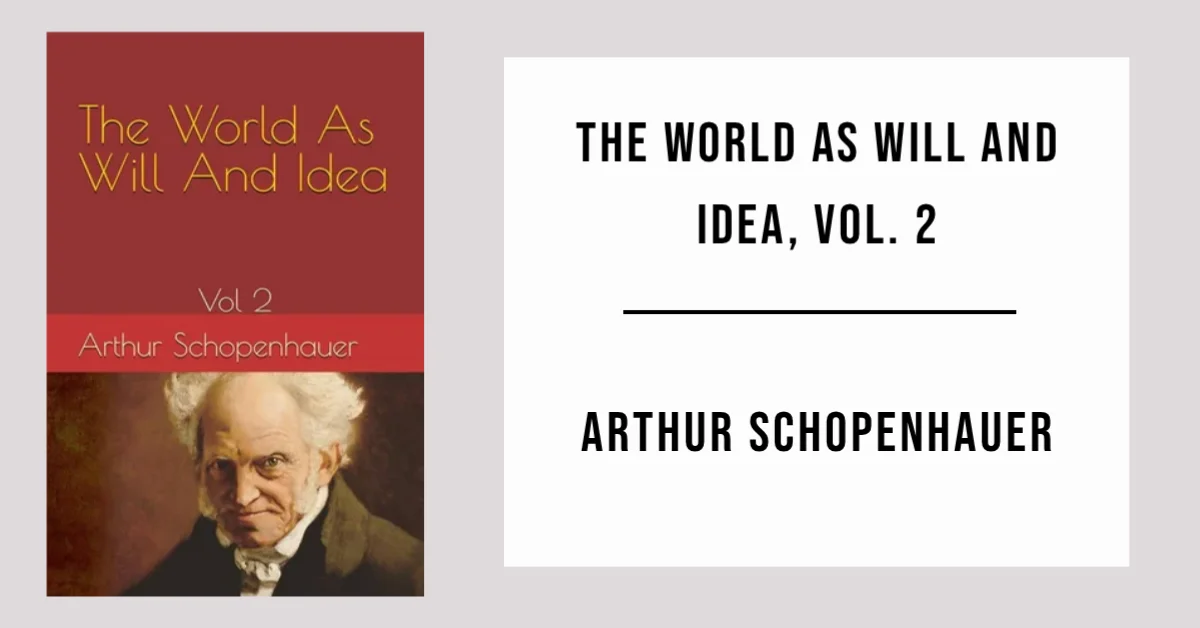
Ready to go deeper into Schopenhauer's system? The World as Will and Idea, Vol. 2 expands and refines the arguments of the first volume with decades of additional reflection on perception, ethics, and the philosophy of science.
Many scholars actually consider this volume more mature and accessible than the original. Schopenhauer tackles aesthetics and the limits of rational thought with striking clarity.
The World as Will and Idea, Vol. 3
PDF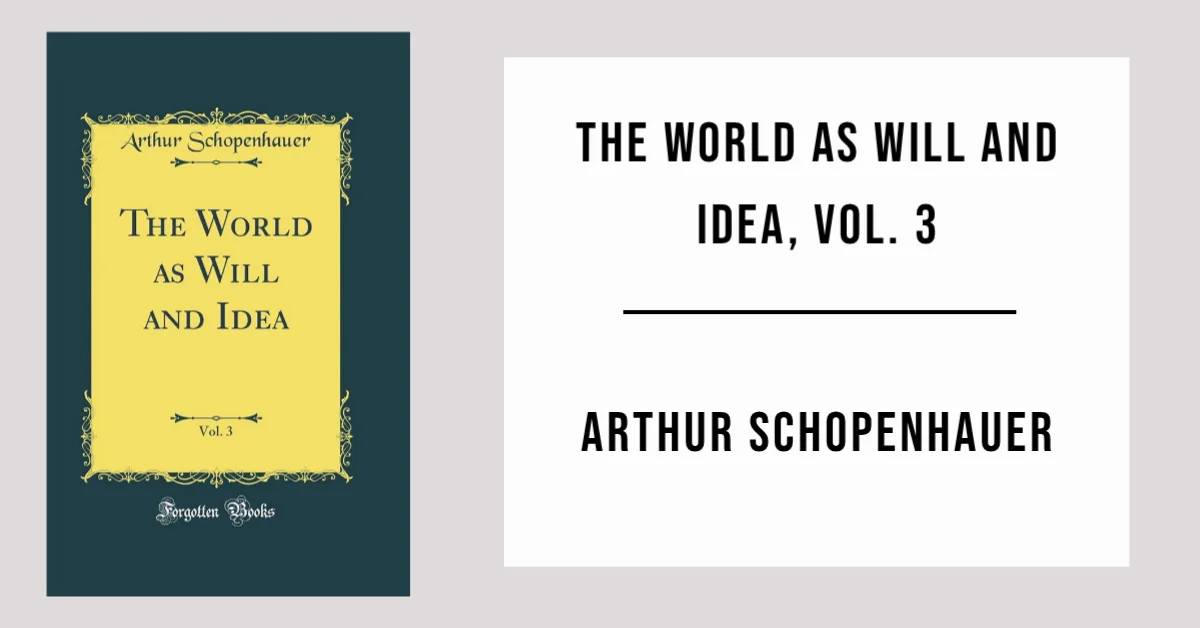
Few people know this book, but it contains some of Schopenhauer's most powerful writing. The World as Will and Idea, Vol. 3 covers aesthetics, the nature of art, and the possibility of human salvation through compassion and the denial of the will-to-live.
Schopenhauer draws on Buddhism and Hinduism, weaving them into Western metaphysics with surprising clarity. Perfect if you need a philosophical framework that takes human suffering seriously and still offers a path forward.
Arthur Schopenhauer's books remain some of the most honest writing in Western philosophy. From short essays on daily life to his deep work on the nature of will, every page rewards careful reading.
